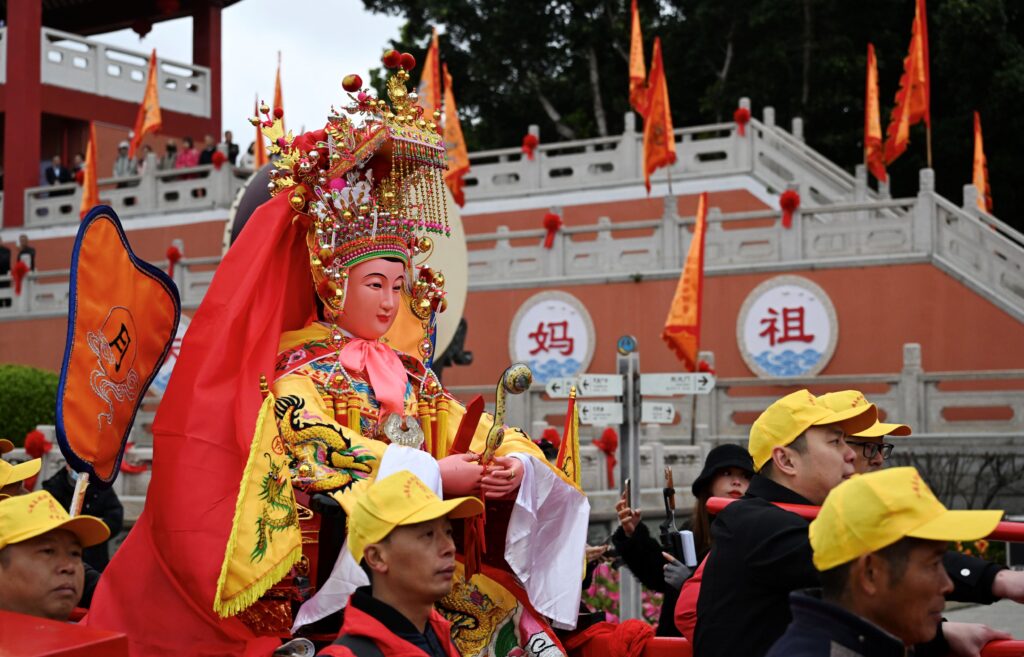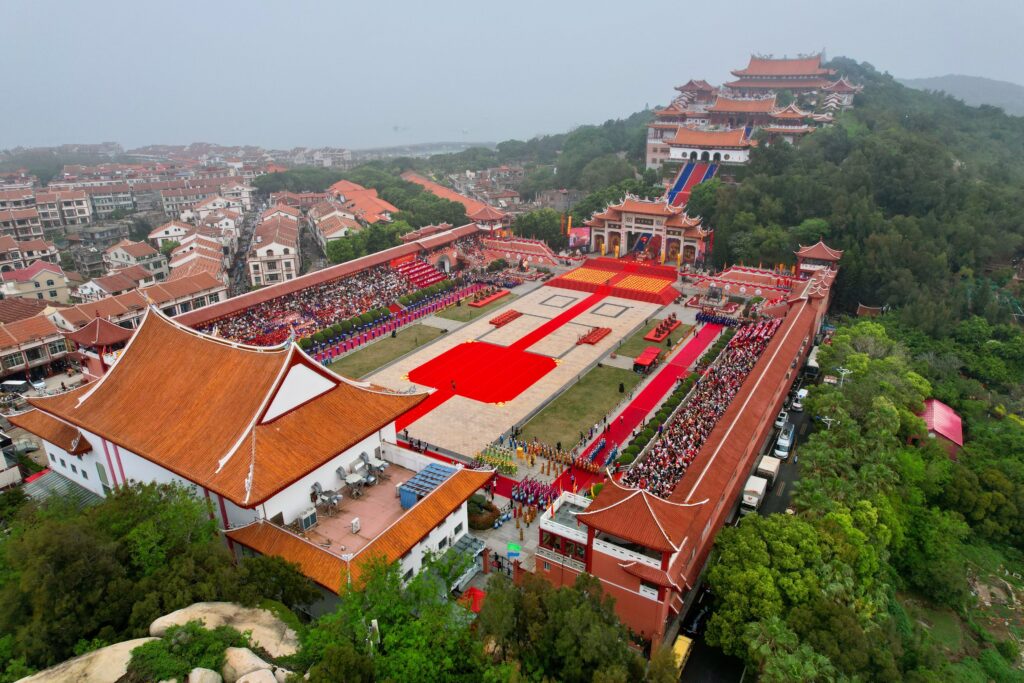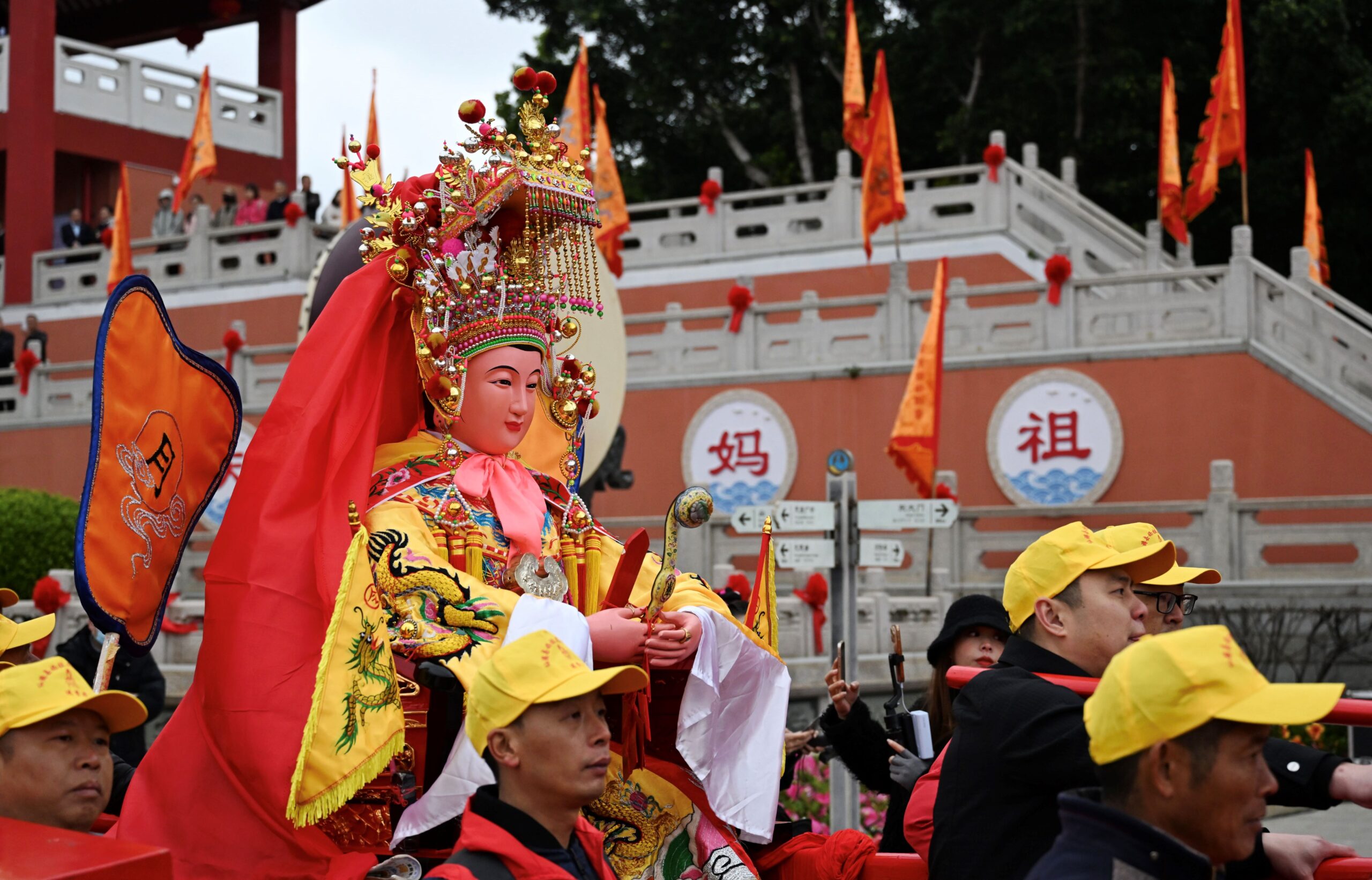Mazu, the Chinese sea goddess, embarks on a global journey from Fujian to Paris, uniting communities and building bridges across cultures.
A special ceremony took place on August 15 at the Meizhou Mazu Temple in Putian, Fujian Province. It marked the enshrinement of the goddess Mazu’s spirit at the French Mazu Cultural Association in Paris. The event shows how a centuries-old sea goddess from China continues to unite people around the world.

Who Is Mazu?
Mazu, often referred to as the “Goddess of the Sea,” is one of the most revered figures in Chinese folk belief. She was born in the 10th century on Meizhou Island in Fujian. Over time, she became known as a protector of sailors, fishermen, and travellers. For millions of people, she represents compassion, safety, and solidarity.

From Fujian to Paris
Paris is home to nearly 10,000 Chinese from Putian. For them, Mazu is both a spiritual anchor and a link to their hometown. In December 2024, the French Mazu Cultural Association prepared a new site in Paris to house the goddess’s spirit. The space now serves as a place for worship and cultural exchange. It also gives French visitors a chance to experience one of China’s oldest living traditions.

A Global Tradition Beyond Borders
Mazu worship has spread far beyond Fujian. More than 10,000 temples across 50 countries and regions trace their roots to the Meizhou temple. The global community of believers now exceeds 300 million. Wherever Chinese communities have travelled, Mazu has travelled with them, creating a network that links people across continents.
Mazu traditions often blend with local cultures. In Southeast Asia, Mazu festivals have evolved into public celebrations that welcome people from diverse backgrounds. In France, the Paris enshrinement strengthens ties among Chinese immigrants and introduces Mazu’s values of peace and protection to the wider public.
Britain is the next stop in this journey. Preparations are underway to enshrine Mazu in the UK. For the Chinese community in London and beyond, this future site will serve as a cultural bridge and a source of belonging. It will also enhance cultural exchange between China and Britain, adding warmth and depth.
If you liked this article, why not read: Unlocking Centuries of Culture, Chinese Culturepedia Now Online!











